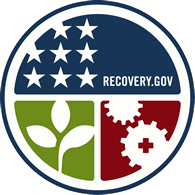News Release: Research, School of Medicine, School of Public Health, Woodruff Health Sciences
Oct. 19, 2009
NIH Awards 18 Challenge and GO Grants to Emory Scientists Through Stimulus Funds
 Learn more about Recovery Act Funding at Emory University.
Learn more about Recovery Act Funding at Emory University.Emory University scientists have earned 12 NIH Challenge Grants and Six Grand Opportunity (GO) awards from American Recovery and Reinvestment Act (stimulus) funding. The two-year grants total almost $11 million in the first year of funding. The grants are among 153 grants totaling more than $53 million awarded to Emory researchers in the first year of stimulus funding.
Challenge Grants are part of a new initiative established by the National Institutes of Health to stimulate advances in high-impact areas such as genomics, regenerative medicine, health disparities and disease prevention. GO awards focus on large projects aimed at creating resources many researchers can use.
Both categories of stimulus grants were highly competitive. The NIH has reported receiving nearly 20,000 Challenge and almost 2,600 GO grant applications from across the country. In June, the NIH projected funding less than five percent of Challenge Grant applications (200 from the Office of the Director and around 200 from NIH Institutes or Centers).
"Emory researchers' success in attracting support in these competitive areas reflects their strengths in finding innovative ways to tackle problems in biomedical research, combined with the unique resources available here," says David Stephens, MD, vice president for research in Emory's Woodruff Health Sciences Center.
Examples of Emory Challenge/GO grants:
Regenerative medicine
With the aim of improving circulation in the limbs of people with peripheral artery disease, doctors will test whether a growth factor can nudge patients' own bone marrow cells into repairing their arteries. Cardiologist Arshed Quyyumi, MD, is directing the first rigorous phase II clinical trial of this treatment. (GO)
Autism
Genetic studies of complex diseases such as autism are shifting towards examining copy number variations, or the loss or gain of small parts of the genome. Led by Emory geneticists David Ledbetter, PhD, and Christa Lese Martin, PhD, a research consortium will create an international genomics database for autism and other developmental disorders. The database will serve as a powerful new research and clinical resource. (GO)
Adult stem cells
An inherited form of muscular dystrophy appears to affect muscle stem cells. Understanding the disease may help pharmacologist Grace Pavlath, PhD, and biochemist Anita Corbett, PhD, unlock new therapies to bolster muscle repair. (Challenge)
Cancer nanotechnology
Tiny fluorescent gold particles that bind cancer cells may offer surgeons the ability to know whether they have removed all of a tumor during an operation. Shuming Nie, PhD, a professor in the Wallace H. Coulter Department of Biomedical Engineering at Georgia Tech and Emory, has played a leading role in developing this technology and is conducting tests of the particles' toxicity and specificity. (GO)
Global public health
Working in Thailand, Barry Ryan, PhD and Anne Riederer, ScD, professors of environmental and occupational health in the Rollins School of Public Health, are improving methods for measuring the exposure of infants to pesticides. (Challenge)
HIV/AIDS
At Yerkes National Primate Research Center and the Emory Vaccine Center, Rama Rao Amara, PhD, is testing therapies for reviving the immune system in monkeys infected with HIV's cousin, SIV. In combination with antiretroviral drugs, this approach may lead to new treatments against HIV/AIDS. (GO)
Human genetics
Emory geneticist Madhuri Hegde, PhD, is developing new techniques for detecting mutations leading to neuromuscular diseases, which are expected to improve diagnosis of patients with muscular dystrophies. (Challenge)
A full list of Emory's Challenge and Grand Opportunity awards is available here: http://www.emory.edu/home/research/stimulus/go-challenge-grants.html
###
The Robert W. Woodruff Health Sciences Center of Emory University is an academic health science and service center focused on missions of teaching, research, health care and public service. Its components include schools of medicine, nursing, and public health; Yerkes National Primate Research Center; the Emory Winship Cancer Institute; and Emory Healthcare, the largest, most comprehensive health system in Georgia. The Woodruff Health Sciences Center has a $2.3 billion budget, 17,000 employees, 2,300 full-time and 1,900 affiliated faculty, 4,300 students and trainees, and a $4.9 billion economic impact on metro Atlanta.
Learn more about Emory’s health sciences:
Blog: http://emoryhealthblog.com
Twitter: @emoryhealthsci
Web: http://emoryhealthsciences.org
